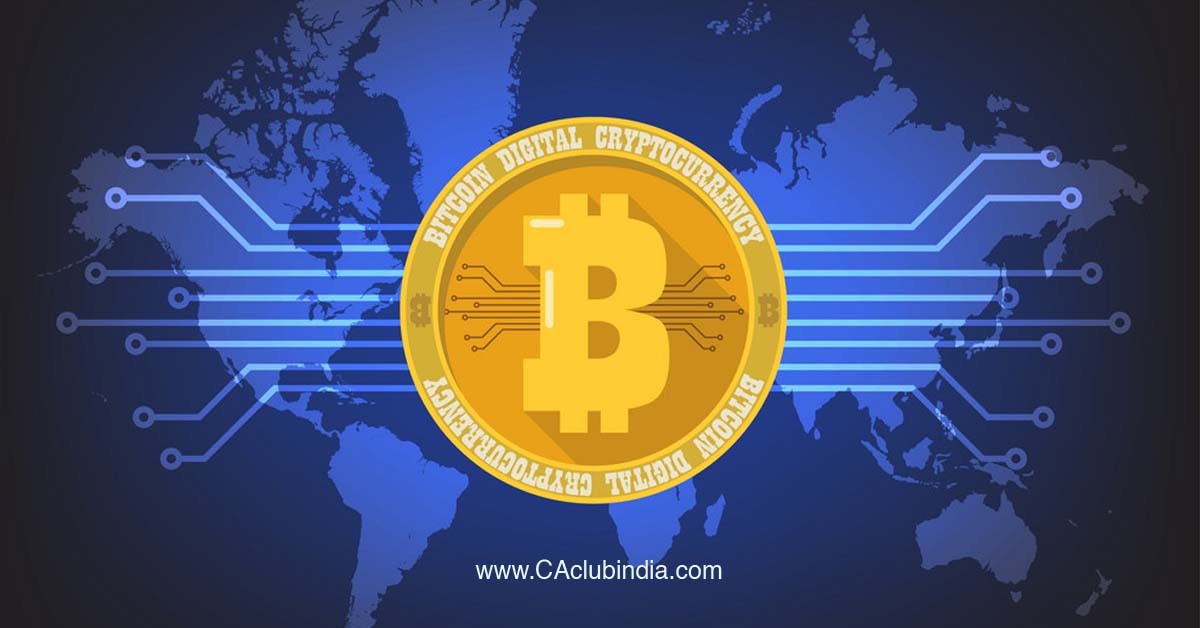Decoding Implications of Crypto Tax in India

Author – CA Jigar Shah
The Indian union budget 2022 came with much joy and anxiety for the crypto industry in India. While it is unclear if the much awaited crypto regulations will be tabled in the parliament this month, there is plenty to decode from the tax-related announcements.
The crypto industry & international media was quick to celebrate the tax regime giving some form of legitimacy to the crypto industry in India. One can understand that this comes as a relief to an industry that has had a rollercoaster past with regulations. However, experts were quick to point out that taxation on an activity is different from its legality and by evening, several finance ministry personnel lend their comments on the same lines. Without getting into the legal status of crypto trade in India, let’s decode the tax announcements and its implications.
To start off with lets make it clear that provisions introduced in the bill shall be applicable on income generated from transactions post 1st April 2022. This is because the said provisions are not introduced retrospectively
Let’s take a quick look at the announcements made by the FM:
- A new terminology is introduced to refer to crypto assets. New term to be used is “Virtual Digital Asset” (referred to as “VDA” or “VDAs” at many places in this article for the sake of brevity) . Virtual digital assets are specifically defined in the Income Tax Act, 1961. The current definition of virtual digital asset include crypto assets/currencies and NFTs
- Income tax of 30% plus applicable surcharge and cess to be levied on income generated by transfer of Virtual Digital Asset
- TDS @1% to be done by buyer at the time of purchase of any virtual digital asset
Defining Virtual Digital Asset
There are 3 limbs of the definition introduced by the government.
- The first limb describes in great detail what in common man’s language we refer to as “crypto currencies”. Government is well informed that there are different types of cryptocurrencies and each may have distinguished underlying technology and use cases. The way the definition is drafted it seems that the government has left no stone unturned to ensure that anything to do with cryptography and of some value falls under the category of virtual digital and as a result is taxed.
- The second limb simply states “a non-fungible token or any other token of similar nature, by whatever name called; ” . By making NFTs as part of the definition of Virtual digital asset, the government has established that tax implications of dealing crypto currencies and NFTs shall remain the same.
It is to be noted that in the “Explanation” of the of the definition government has stated that (a) “non-fungible token” means such digital asset as the Central Government may, by notification in the Official Gazette, specify;
Hence, it is safe to assume that there will be further notification “specifying” what NFTs shall constitute.
- The third and final limb states “(c) any other digital asset, as the Central Government may, by notification in the Official Gazette specify:”
This is done to keep the definition open-ended and to keep room to amend or add similar type of asset class in future
Taxing Virtual Digital Asset
The Taxable Event
A new section, Section 115BBH is introduced in the Income Tax Act to lay down provisions relating to taxation of VDA transactions. As per the section, gains on transfer of crypto transactions are taxed at a flat rate of 30% plus applicable surcharge and cess.
It is not uncommon to have a separate rate for a specific type of transaction in Income tax. For example, short term capital gains from dealing in equity securities is taxed at 15%.
Also, it is not that only crypto transactions are taxed at the rate of 30%. Partnership firms and LLPs pay tax on a flat rate of 30% + applicable surcharge and cess on their profits. Even Individuals and HUFs, pay tax at the rate of 30% on taxable income above Rs. 10 Lacs or Rs. 15 Lacs (if opted to pay tax at new rates). As far as tax rate is concerned it is more or less in line with normal tax rates for people earning higher taxable income in India
Tax Rate and Computation
A new section, Section 115BBH is introduced in the Income Tax Act to lay down provisions relating to taxation of VDA transactions. As per the section, gains on transfer of crypto transactions are taxed at a flat rate of 30% plus applicable surcharge and cess.
It is not uncommon to have a separate rate for a specific type of transaction in Income tax. For example, short term capital gains from dealing in equity securities is taxed at 15%.
Also, it is not that only crypto transactions are taxed at the rate of 30%. Partnership firms and LLPs pay tax on a flat rate of 30% + applicable surcharge and cess on their profits. Even Individuals and HUFs, pay tax at the rate of 30% on taxable income above Rs. 10 Lacs or Rs. 15 Lacs (if opted to pay tax at new rates). As far as tax rate is concerned it is more or less in line with normal tax rates for people earning higher taxable income in India
Benefit of Basic Exemption Limit not granted
There are few other provisions which force us to think that on a broader level the government does not encourage trading or investing in VDAs. One of them is that even Individuals and HUFs cannot enjoy basic exemption limits on their crypto or VDA income.
Let us say Mr. Vicky has earned Rs. 1,00,000/- through crypto trading, Rs. 1,20,000/- through trading in equity shares and he has no other income. Now, there are flat rates of taxation for both crypto trading (30%) and short-term capital gain on equity shares (15%). Vicky has to pay tax at 30% on his crypto investments but no tax on short term capital gain as his overall income is less than Rs. 2,50,000/-. However, he is eligible to claim relief of tax upto Rs. 12,500/- U/s 87A as his overall income is less than Rs. 5,00,000/- . To summarize tax computation of Vicky will be as under-
Particulars
Income from Crypto Trading
Income from Investment in shares (Short Term)
Total Income
Tax on Crypto trading at 30%
Tax on Investment in shares (Short Term)
Relief U/s 87A
Cess @ 4% on 17,500/- (30,000 less 12,500)
Total Tax to be paid
Amount (in Rs)
1,00,000/-
1,20,000/-
2,20,000/-
30,000/-
Nil
(12,500/-)
700/-
18,200/-
Similar provisions are applicable in case of winnings from lotteries, betting on horse races, etc. One can say that from the government’s point of view as far as taxation is concerned, earnings from crypto trading is as good as winning a lottery!!!
Inter Set off and carry forward of losses
One more thing to be taken into consideration is that losses from crypto transactions cannot be adjusted against any other income. For example, if at the end of the year one has incurred a net loss of Rs. 1 Lac from crypto transactions and income from other sources is Rs. 10 Lacs. That person will have to pay tax on Rs. 10 Lacs of income from other sources, Rs. 1 Lac loss will not be reduced from his income from other sources.
Above is in line with provisions of set off of losses under the head Capital gains. One cannot set off loss under the head of “Income from Capital gain” against the income of any other head. However, loss within the head of capital gain can be set off against each other in following manner-
- Long Term Capital Loss can be set off only against Long Term Capital Gains.
- Short Term Capital Losses are allowed to be set off against both Long Term Gains and Short Term Gains.
So for example, lets say Vicky has a short term capital loss of say Rs. 5 Lacs because of investing in equity shares and at the same time he also has a long term capital gain of Rs. 20 Lacs on sale of some house property. He has to pay tax only on Rs. 15 Lacs.
In the same example above if the loss of Rs. 5 Lacs was from crypto transactions. In that case, Vicky would have to pay tax on long term capital gain of Rs. 20 Lacs. He would not have been allowed to adjust loss incurred from crypto transactions against long term capital gain.
It shall be noted that losses incurred on crypto trades can be set off against crypto gains!!! However, if there is a net loss at the end of the financial year because of transactions in VDAs. The said loss cannot be carried forward to next year.
No reduction of Expenses incurred for crypto gains
Generally, any expense incurred to generate any income can be reduced to arrive at Taxable income. For example, let us say if one has sold a house property and for selling the same that person has incurred brokerage expenses. That brokerage expense shall be reduced from gains earned from the sale transaction. This is because it is in direct relation to earn that income.
However, when it comes to VDA transactions only “cost of acquisition” will be allowed as an expense against the sale consideration. Any expenses like service fee, brokerage fees, gas fees etc of exchanges will not be allowed as a reduction from the income.
Taxing is fine, TDS is a challenge
All buyers except “specified persons” any VDA is required to deduct TDS at 1% if they purchase a VDA of more than Rs. 10,000/- from any seller resident in India. In case of “specified persons” this threshold is of Rs. 50,000/-
Purpose of this provision is to ensure VDA transactions are traced and they don’t escape taxability.
Buyer is not required to obtain TAN in order to comply with this provision. This means there will be a separate form made available for reporting such transactions and filing TDS returns. A similar mechanism is in place to pay TDS on purchase of immovable property. It is worthwhile to note that this provision shall be applicable from 1st July 2022 and not 1st April 2022 like other provisions.
Managing TDS is possible when buyer and seller know each other and have information of each other’s PAN number but it is not clear how this provision can be complied with when transactions are happening through an exchange. There are very high chances that obligation of TDS will be passed on to exchanges. In that case, it will be in line with current provisions of TDS with respect to transactions through e-commerce platforms. Wherein obligation of TDS/TCS is passed on to e-commerce operators.
TDS in case of non INR transactions
TDS is to be done even if one VDA is exchanged with another VDA. For eg. if Vicky buys BTC from Angad and pays to Angad with ETH. In this case, INR value of the transaction will have to be derived. Let’s assume the INR value of the transaction derived is Rs. 1,00,000/- . In this scenario, Vicky is required to collect Rs. 1,000/- over and above the transaction value and pay the same to the government in the form of TDS.
Interestingly, if we look at the above scenario from Angad’s point of view he is buying ETH from Vicky and has given BTC in exchange. So in a way both are buyers as well as sellers. Whether both parties will be required to comply with TDS obligation is still not clear.
Liquidity crunch for frequent traders
TDS may also pose a significant challenge to frequent traders as 1% gets deducted from every sale transaction that they do. Just to give a parlance, TDS and TCS was introduced on trading of goods. TDS Rate for the same is only 0.10% and only businesses having turnover of more than Rs. 10 Crores are required to comply with it.
A lot of liquidity will be blocked in taxes and will remain with the government. 1% of transaction value for a trader will accumulate in a big amount leading to liquidity crunch.
Virtual Digital Asset added in the definition of “property”
If one receives gifts in the form of VDAs for value of more than Rs. 50,000/- such gift shall become taxable in the hand of receiver under income from other sources. However, there will be no tax if such gift is received from a relative defined under Income Tax Act.
An attempt has been made to decode tax provisions as introduced in the Union Budget, 2022 but it seems there is a long way to go. Procedural aspects are still not clear and are yet to be notified. Implications of VDA transactions under GST is not clear yet. There are high chances that there will be additional disclosure requirements in Income Tax form with regards to VDA holdings. There are many platforms which enable earning of interest income on crypto holdings. How will that income be taxed? Is it legal to provide such services?
A draft bill on crypto transactions, “Cryptocurrency Bill, 2021” was published in 2021 for inputs from stakeholders. It was a draconian one hinting at a complete ban of crypto transactions in India. However, the same was never tabled in the parliament. Going forward, it is very likely that soon we will have detailed regulations in respect to Crypto transactions and the overall crypto ecosystem.
“Virtual Digital Asset” is referred to as “VDA” or “VDAs” at many places in this article for the sake of brevity. Further, the term virtual digital asset and crypto transactions or cryptocurrency transactions are used interchangeably for the sake of simplicity.




